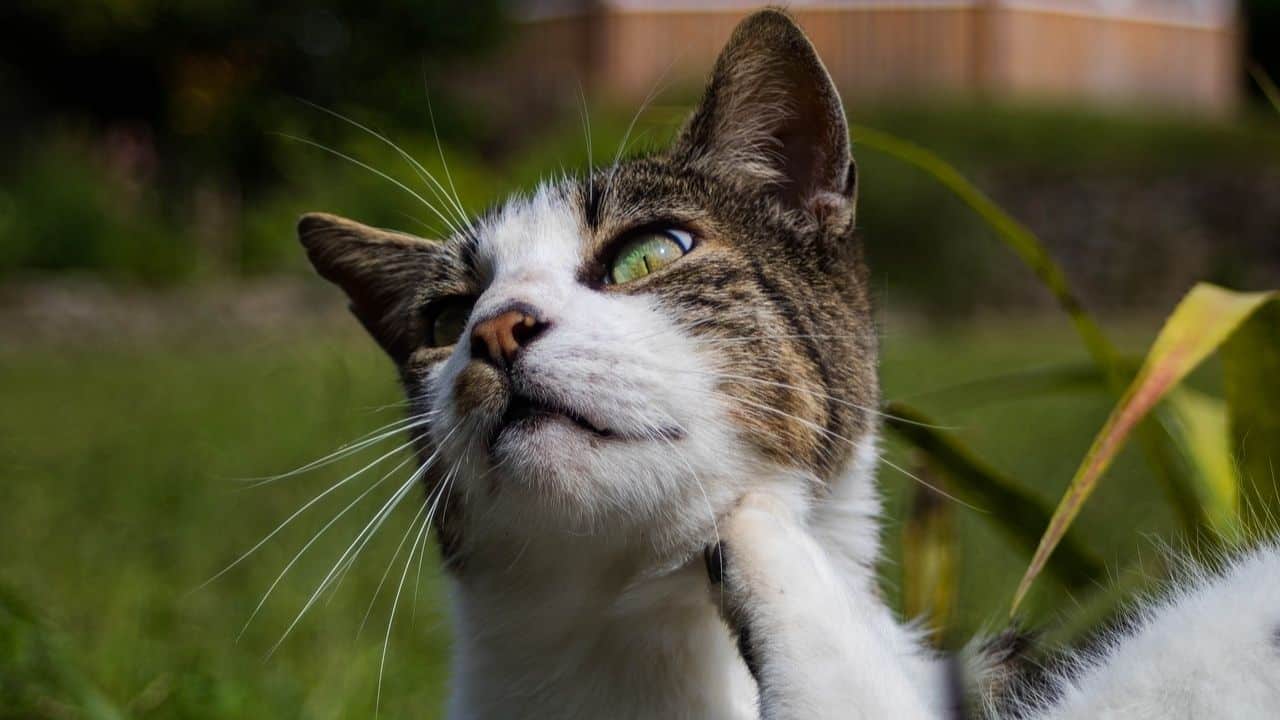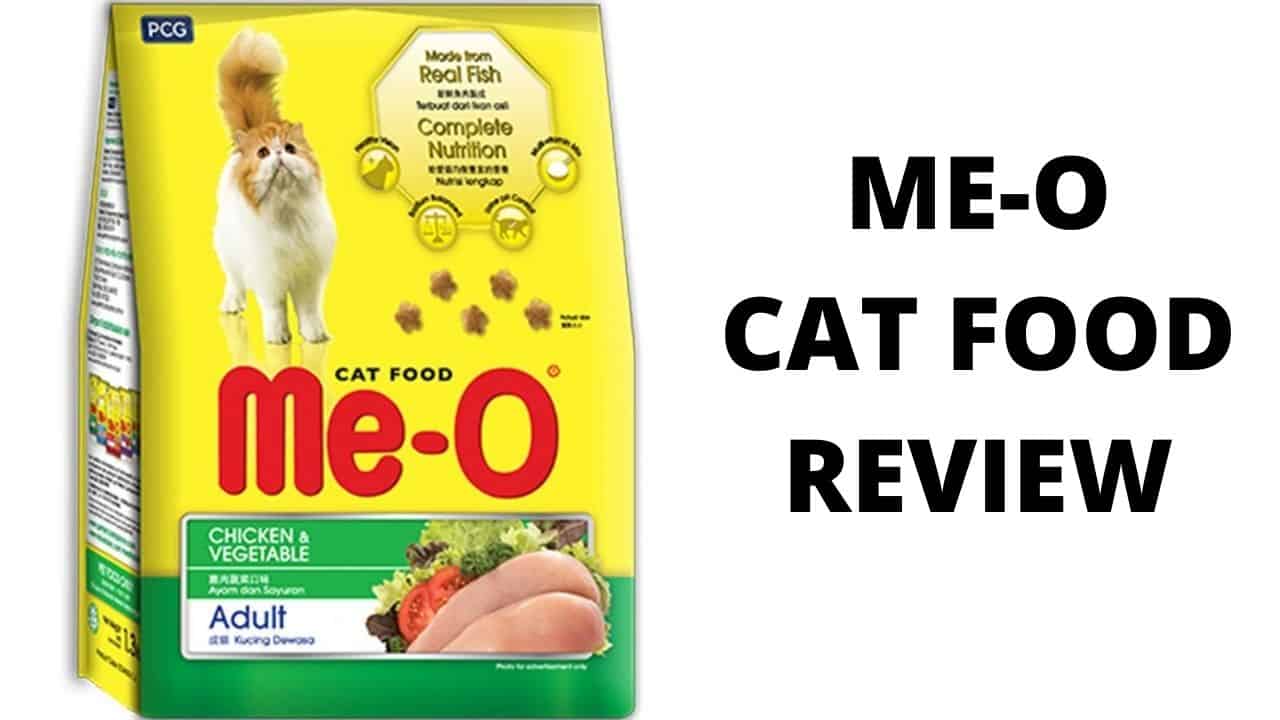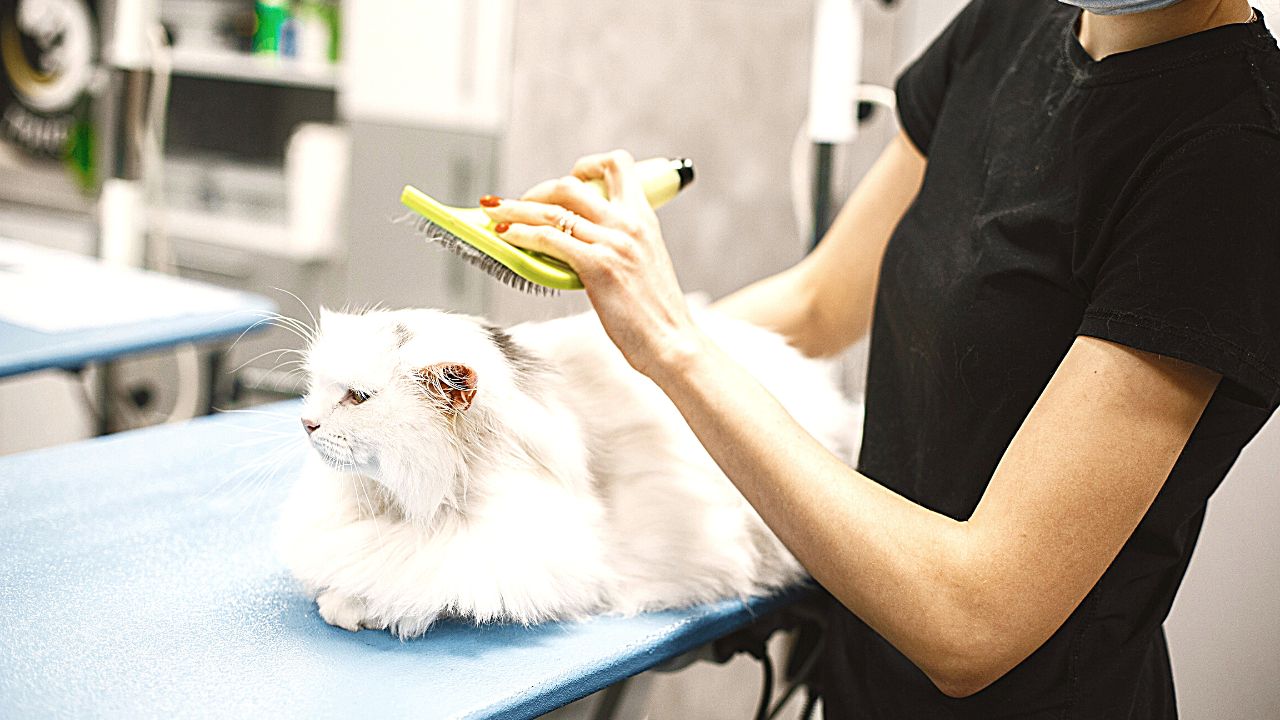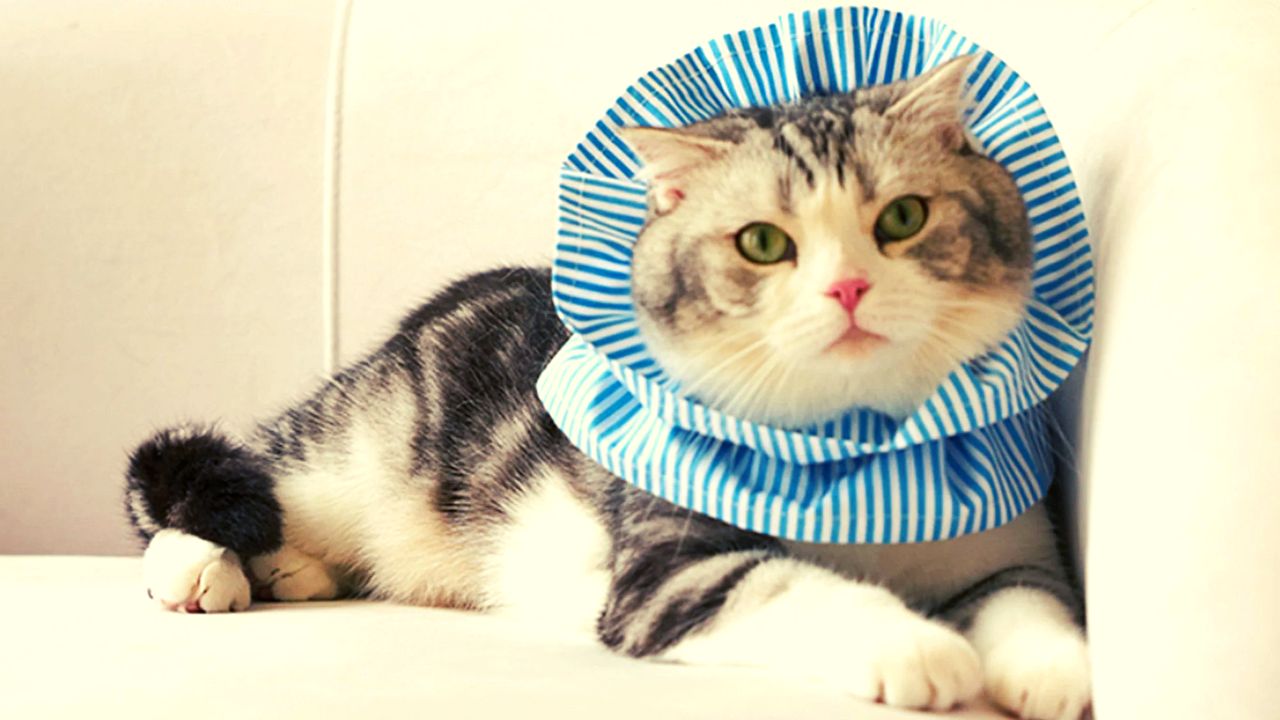
Table of Contents
Cats who scratch and chew their skin or seem restless might have gotten infected with fleas. You can help them soothe their itch by knowing how to spot and destroy fleas on your pet’s skin and in your house.
If your cat is infested with fleas, they must be treated immediately! Cats that go outside more frequently are more likely to pick up fleas, but even indoor cats can get fleas from the family dog or when they go to the veterinarian or a boarding facility. Fleas can even come through your clothes or shoes.
Fleas can pose a severe threat to your cat’s health, seriously damage your cat’s skin, and even cause an allergic reaction or weaken them from blood loss. Fleas can also transmit diseases like Bartonella henselae bacteria, which can lead to cat scratch disease, and are responsible for cats contracting parasites like tapeworms.
Best cat flea control products on Amazon India
Bestsellers in Cat Flea & Tick Control

Understanding Fleas and Their Life Cycle
To effectively control fleas, it’s essential to understand their life cycle. This section will explain the different stages of the flea life cycle and how they can be targeted for adequate control.
Signs That Your Cat May Have A Flea Or Tick Infestation
Before you spend money on flea treatments, look out for the symptoms first.
Signs of fleas in cats include scratching, skin irritation, and the presence of dark red or black specks on your cat’s skin, fur, bedding, or furniture. These specks are called “flea dirt, ” mostly flea faeces (or digested blood). To confirm, place some dirt on a damp paper towel. If the paper towel turns red, it is flea dirt.
- Watch for any signs of movement in their fur. If you spot tiny bugs bouncing off their coat, it’s time to fight fleas.
- Comb your cat with a fine-toothed flea comb from head to tail several times daily. This will remove the adult fleas and their eggs to comfort them.
- Dip the comb in a warm-to-hot water mixture and liquid dish detergent to clean.
How to Prevent Cat Fleas?
Your cat’s warm, furry coat and nourishing blood supply are a special feast to the disgusting fleas. Protect your cat by preventing these tiny pests from settling in. There are a few different types, as discussed below.
Best otc flea treatment for cats
Spot-on treatments are safer and more effective than dusters, shampoos, and sprays. You can buy them from your vet or online.
Types of over-the-counter flea control products
To help you choose products quickly, this table is formulated.
| Product | Buy on Amazon |
| Jimmy Cat Flea Powder | Click here |
| Dr. Flee cat flea treatment shampoo | Click here |
| Qpets® Flea and Tick Collar | Click here |
| Green dragon’s Natural Ticks and Flea Killer Spray | Click here |
| Cat Scratching Post | Click here |
| Green Dragon’s Natural Ticks and Flea Killer Spray | Click here |
| Apple Cider Vinegar | Click here |
| Vacuum cleaner | Click here |
| Lavender leaves | Click here |
When it comes to flea control, prevention is always the best medicine.
- Topical preventives are usually applied to the skin, typically in one spot on the back of the neck, once a month.
- Flea collars are worn around the neck, delivering flea-preventive medication to your cat’s skin and coat.
- Flea shampoos kill fleas that are currently on your cat and are different from other medicated shampoos for cats.
- Flea sprays are applied to the skin and coat but are generally less effective than other flea prevention treatments.
- Oral flea control products, or “flea pills,” are fed to your cat by mouth to kill fleas.
Managing Fleas in Your Home
Fleas don’t just affect your cat; they can also infest your home. This section will provide tips on managing fleas in your home, including vacuuming, washing bedding, and using flea sprays.
Medical products for quick cat fleas treatment
Tablets
Tablets can be helpful in some situations, especially if an owner finds these easier to administer than spot-on. Again, always use a product specifically recommended by your vet and licensed for use in cats.
Powders
Generally, flea powders are only active for as long as they remain on the coat and are not a good choice for treatment.
Collars
Insecticidal collars are impregnated with active ingredients such as permethrin, pyrethroids, organophosphates, or flea growth-inhibiting substances such as methoprene. In general, collars are not very effective, may also cause local skin irritation, and if they do not incorporate a safety snap-open device, can lead to injury. However, some newer flea collars (only available from vets) may be far more effective and safer.
Aerosol sprays
Aerosol sprays are problematic with cats as many cats find the ‘hissing’ noise they produce frightening. Many of these also use older, less effective, and/or unsafe products.
Pump action sprays
Pump action sprays containing flea control products may be available and suitable for use as the pump action minimizes any distress to the cat.
Insect (flea) growth regulators
As well as being present in some spot-on preparations or environmental sprays, flea growth regulators may also be available as an injectable product or as a product that can be given orally. These may be more accessible solutions for some cats, but they should always be combined with a product that kills adult fleas.
Flea control products for cats to use in the home
Sprays
Many environmental sprays in the home contain insecticides with or without an insect growth regulator. If you have a fish tank, always ensure it is covered with damp towels if using these sprays. Never use these near a fish tank, as some contain products highly toxic to fish.
A single spray application to the environment can last six months to a year, depending on the product used. Note that some sprays contain permethrin, and great care should be taken not to allow the spray to contact cats. Consider also possible additive effects in cats undergoing treatment should the cat come into contact with other products containing these chemicals.
Foggers and bombs
Different foggers and bombs are available for treating the environment, but these are not usually very effective as specific areas of infestation may not be reached. Spray products which allow areas to be explicitly targeted are preferable.
Alternative products
Many so-called natural compounds have been suggested to have flea-killing or flea-repellent qualities. These include concentrated eucalyptus oil, neem oil, pennyroyal oil, tea tree oil, citrus oil, and D-limonene.
Some of these compounds are potentially toxic to cats and other animals, and none are likely as effective as your vet’s licensed product. Do not rely on these products; if you are unsure, always consult your vet.
Natural Home Remedies for Cat Fleas
Cedar Chips
It’s a known fact that fleas hate the smell of cedar chips—and there’s a chance your cat may not be too fond of it, either. However, in your garden, you can spread cedar chips around your cat’s bedding or outdoors. You can also apply cedar oil spray on your cat’s fur, as it is a safe, non-toxic essential oil, or put a few drops on a banana peel or even your cat’s collar to help keep the bugs at bay.
Lemons
One of the most effective natural flea killers is citric acid, which makes lemon juice a widely-recognized home remedy for treating fleas. You can spray your cat’s coat with a solution by boiling a cut lemon or two (let the lemons steep for a few hours) and draining the liquid before transferring it to a spray bottle. Work the solution gently into your car’s fur—just be sure to avoid his or her eyes, monitor your pet for redness or other signs of irritation—and repeat the treatment as often as needed until the fleas are gone.
If your cat hates water—as most cats do—you can also try using a comb dipped into the solution and brushing the fleas out. If you’re concerned about leftover fleas and flea eggs, add a cup of lemon juice to your laundry while washing your pet’s bedding to help exterminate any remaining.
Spices
One of the easiest things you can do for a flea-infested cat is to spice up its life with natural ingredients you might find in your kitchen. Because of a natural compound known as carvacrol, oregano oil can be very effective at removing fleas; start by mixing one teaspoon of oregano oil with three teaspoons of olive oil and apply small amounts of the solution to areas where fleas tend to congregate, like your cat’s ears, stomach, tail, and neck. Fleas also don’t particularly care for rosemary; try grinding the leaves into a powder and sprinkling it in the areas where your cat tends to hang out in your home.
If your cat doesn’t allow you to apply topical treatments to its fur, you can try mixing a small amount (less than a teaspoon) of cumin into your cat’s food. The spice will make your cat’s skin very unpalatable to fleas.
If you don’t have any of these spices on hand, a little bit of table salt can also do the trick, as it helps dehydrate and kill the fleas on your cat. Better yet, it kills fleas and flea eggs that may be lurking on your carpet (just sprinkle it on), or when mixed with water, it can be used to treat hard surfaces.
Apple Cider Vinegar
Another grocery store product that fleas don’t enjoy is apple cider vinegar. While it’s not effective at killing the bugs, apple cider vinegar can cause fleas to jump from your cat’s body so that you can make the first attack. Mix the apple cider vinegar with water in a 2:1 ratio and spray it onto your cat’s coat.
Cleaning
You’ll also want to be sure to clean all floors and upholstery with a vacuum cleaner and immediately dispose of the vacuum cleaner bag, wash all bedding in hot water, and consider removing pet food bowls, bird feeders, garbage cans, and any other sources of food from your yard not to attract wildlife who can re-infect your cat.
Dish Soap
Dish soaps have proven to be very effective at exterminating fleas. The dish soap breaks down the flea’s exoskeleton and kills them within minutes, even after it’s been diluted in water. Simply wet your cat’s coat—a spray bottle will do the trick— and gently lather the dish soap into his or her fur (focusing on areas where fleas tend to hide) before rinsing.
Lavender and Chamomile
Lavender is a powerful, fast-acting agent against fleas. Some studies have shown that formulas containing diluted lavender were just as effective at killing fleas as commercial chemical sprays. To put lavender to good use in your home, let it steep in water overnight before straining the liquid and spraying it onto your cat’s coat (no need to rinse).
Conclusion: What You Should Know About Cat Flea Prevention/Treatment
There are many different remedies and methods for treating fleas and ticks on cats, and there are also various over-the-counter cat flea medicine options on the market today. The rapid influx of so many untested cat flea medicine brands and specifically spot-on treatments led the Environmental Protection Agency (EPA) to warn about possible toxic reactions to cat flea medicine. This resulted from an increase in cat fatalities attributed to the inappropriate use of some products.
FAQs
Can cat fleas live on humans?
Fleas do not live on humans. They generally bite down at the feet, ankles, and legs by jumping from an infested pet or another animal, but it is most likely from an infested pet bed.
Where do fleas like to be on cats?
Part your pet’s fur in several places to see his skin. Fleas mainly live in the neck, lower back, hind legs, and tail.
Can a cat die from fleas?
If a large number of fleas bite your cat and feed it, your cat can develop anaemia. Symptoms of anaemia in cats include weakness, lethargy, rapid breathing, and potentially death if the fleas are not killed.
How do topical flea medications work?
Topical flea medications are applied directly to a cat’s skin, usually between the shoulder blades. These medications contain insecticides that kill fleas and prevent them from reproducing. Most topical flea medications remain effective for up to a month.
How do oral flea medications work?
Oral flea medications are taken by mouth and work by killing fleas when they bite the cat. Some oral flea medications are effective for up to a month, while others provide shorter-term protection.
Are flea collars effective?
Flea collars contain insecticides that are released gradually over time and effectively kill and repelling fleas. However, they may not be as effective as other flea treatments, and they can cause skin irritation in some cats.
Can I use a flea treatment for dogs on my cat?
No, flea treatments designed for dogs should never be used on cats. Some flea treatments that are safe for dogs contain ingredients that are toxic to cats and can cause serious health problems.
How do I choose the proper flea treatment for my cat?
The best flea treatment for your cat depends on several factors, including the severity of the flea infestation, your cat’s age and health, and personal preferences. Your veterinarian can recommend a flea treatment that is safe and effective for your cat.
How can I prevent my cat from getting fleas in the first place?
There are several ways to prevent fleas, including keeping your cat indoors, regularly vacuuming your home and treating all pets in your household for fleas. You may also want to consider using flea prevention products, such as flea collars or topical medications, even if your cat does not have fleas.







